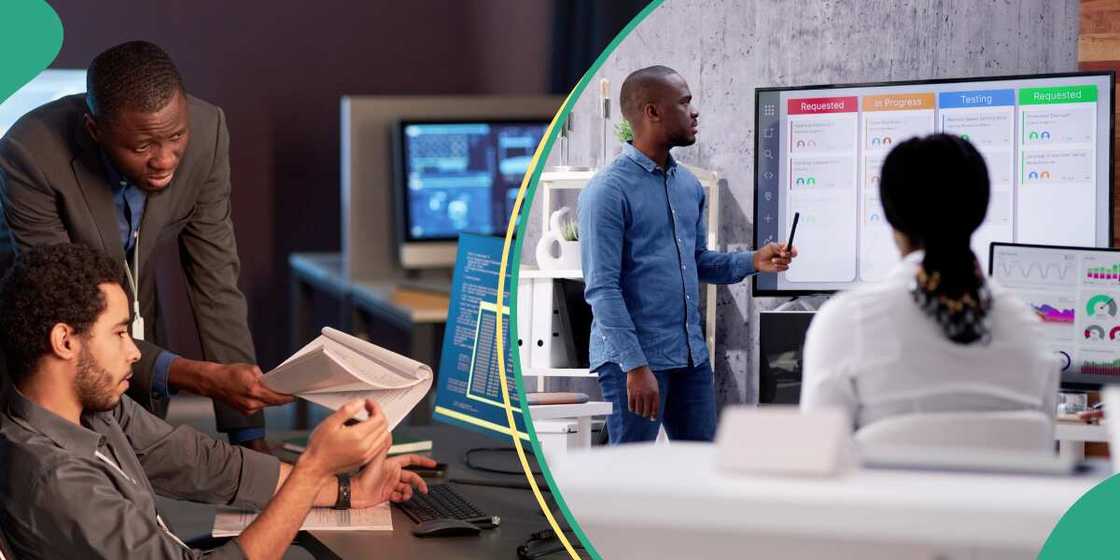The Importance of Digital Literacy in the Modern World
In today’s technology-driven world, digital literacy is no longer optional—it is a necessity. Whether for education, work, communication, or daily life, the ability to navigate digital tools effectively empowers individuals to stay connected, informed, and competitive.
In this guide, we’ll explore what digital literacy is, why it matters, and how to improve it.
1. What is Digital Literacy? 🖥️
Digital literacy refers to the ability to use digital devices, the internet, and software tools effectively. It goes beyond just using a computer; it includes understanding, evaluating, and creating digital content responsibly.
📌 Key Components of Digital Literacy:
✅ Basic Computer Skills – Using a keyboard, mouse, and software applications.
✅ Internet Navigation – Browsing websites, using search engines, and managing online accounts.
✅ Online Communication – Sending emails, using social media, and participating in video calls.
✅ Digital Security – Protecting personal information, recognizing scams, and practicing safe browsing.
✅ Information Evaluation – Identifying fake news, fact-checking sources, and avoiding misinformation.
✅ Creating Digital Content – Writing blog posts, making presentations, or editing videos.
📌 Example: A student who can research topics online, evaluate credible sources, and present their findings using PowerPoint is digitally literate.
2. Why is Digital Literacy Important? 🌍
Digital literacy impacts every aspect of modern life. Below are some of the key reasons why it’s essential:
📌 1. Essential for Education 🎓
In schools and universities, students use online learning platforms, digital textbooks, and research tools. Without digital literacy, learning becomes difficult.
✅ Example: Many universities use platforms like Google Classroom, Moodle, and Coursera for online learning.
📌 2. Crucial for Employment & Career Growth 💼
Most jobs require basic computer skills, and many industries rely on digital tools for communication, data analysis, and automation.
✅ Example: A job in customer service may require knowledge of email, chat software, and CRM tools.
📌 3. Helps in Safe Internet Usage 🔒
Digital literacy helps individuals recognize online threats like phishing emails, fake websites, and scams, reducing the risk of identity theft.
✅ Example: Being able to identify a fraudulent email from a fake bank prevents financial loss.
📌 4. Improves Critical Thinking & Information Evaluation 🧐
With so much misinformation online, digital literacy helps people fact-check sources, detect bias, and make informed decisions.
✅ Example: Before sharing a news article on social media, a digitally literate person verifies its authenticity.
📌 5. Enhances Social Connection & Communication 📲
From emails to social media and video calls, digital literacy enables people to stay connected with family, friends, and colleagues worldwide.
✅ Example: Elderly people learning to use WhatsApp or Zoom can stay connected with their families.
📌 6. Supports Financial Independence & Online Transactions 💳
Digital literacy enables secure online banking, mobile payments, and e-commerce, helping individuals manage finances more efficiently.
✅ Example: A digitally literate person can use mobile banking apps like Kuda or Opay to transfer money safely.
📌 7. Encourages Innovation & Creativity 🎨
From blogging to graphic design and coding, digital literacy empowers people to create content, build businesses, and explore new opportunities.
✅ Example: Many young entrepreneurs in Nigeria are leveraging Instagram and TikTok for business marketing.
3. How to Improve Digital Literacy 🏆
If you want to become more digitally literate, here are some practical steps to take:
📌 1. Learn Basic Computer Skills
🔹 Practice typing and using Microsoft Office (Word, Excel, PowerPoint).
🔹 Learn basic file management (creating folders, saving files, using USB drives).
📌 2. Use Search Engines Effectively
🔹 Learn Google search techniques to find accurate information.
🔹 Fact-check news using trusted sources like BBC, CNN, or FactCheck.org.
📌 3. Take Online Courses
🔹 Platforms like Coursera, Udemy, and Khan Academy offer free courses on digital skills.
🔹 ICT training centers in Nigeria provide hands-on learning.
📌 4. Improve Cybersecurity Awareness
🔹 Use strong passwords and enable two-factor authentication (2FA).
🔹 Avoid clicking on suspicious links or downloading unknown files.
📌 5. Explore Digital Tools & Applications
🔹 Learn to use Google Drive, Zoom, and social media.
🔹 Explore Canva for design, Google Docs for writing, and Trello for productivity.
📌 6. Teach Others & Stay Updated
🔹 Share what you learn with friends, family, or colleagues.
🔹 Follow tech blogs and YouTube channels to stay updated on digital trends.
4. The Future of Digital Literacy 🚀
As technology advances, digital literacy will become even more critical. Emerging fields like Artificial Intelligence (AI), Blockchain, and the Internet of Things (IoT) will require individuals to adapt and learn new skills continuously.
✅ Governments and schools are now including digital literacy in education policies.
✅ Workplaces are offering digital skills training for employees.
✅ Businesses are shifting towards e-commerce, requiring customers to understand digital transactions.
📌 Example: The Nigerian government has launched initiatives to promote ICT education, recognizing its importance in national development.
Final Thoughts 💡
Digital literacy is the foundation of success in the modern world. Whether you’re a student, a professional, or a business owner, mastering digital skills will help you learn, work, communicate, and stay safe online.
✅ Quick Summary:
🔹 Digital literacy involves computer skills, online safety, and critical thinking.
🔹 It is essential for education, careers, and personal security.
🔹 Learning basic digital tools and cybersecurity practices improves literacy.
🔹 The future of work and communication depends on strong digital skills.






